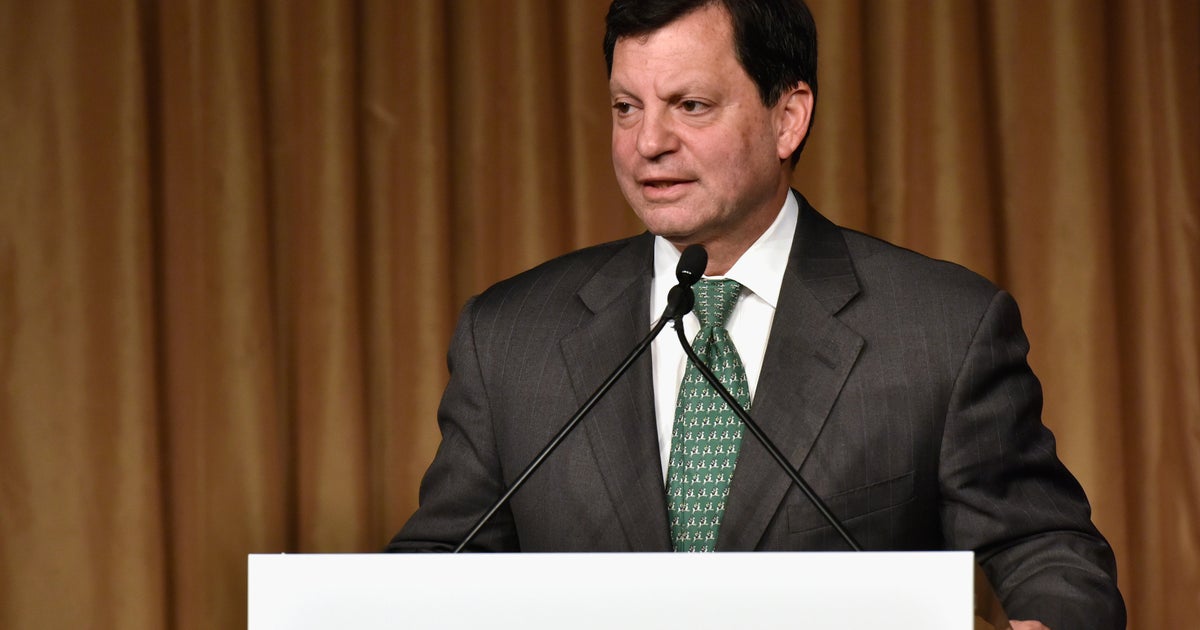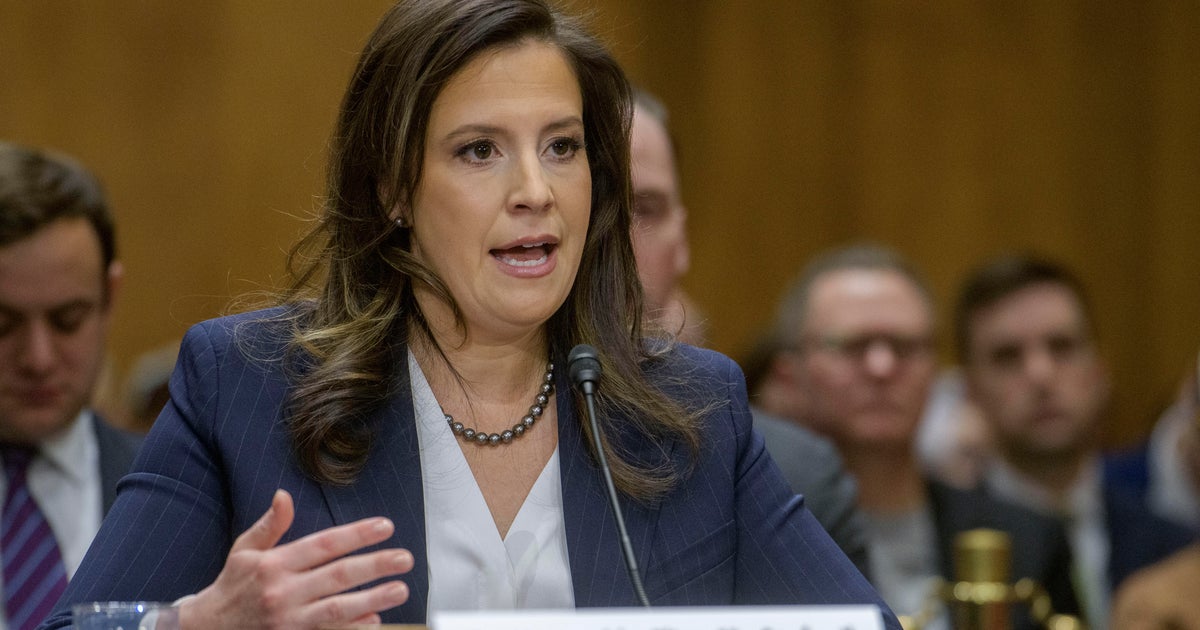Possible pay-to-play scheme for ambassador role in Trump administration uncovered by CBS News
A CBS News investigation has uncovered a possible pay-for-play scheme involving the Republican National Committee and President Trump's nominee for ambassador to the Bahamas. Emails obtained by CBS News show the nominee, San Diego billionaire Doug Manchester, was asked by the RNC to donate half a million dollars as his confirmation in the Senate hung in the balance, chief investigative correspondent Jim Axelrod reports.
When Hurricane Dorian ravaged the Bahamas in September, Manchester wanted to help. So the San Diego real estate developer, who prefers the nickname "Papa Doug," loaded up his private jet with supplies and headed for the hard-hit Caribbean country where he owned a home — and hoped to soon be serving as U.S. ambassador.
A Mr. Trump supporter, Manchester donated $1 million to Mr. Trump's inauguration fund. He was offered the Bahamas post the day after Mr. Trump was sworn in. Manchester said Mr. Trump told him, "I should probably be the ambassador to the Bahamas and you should be president."
Then, for two and a half years, Manchester's nomination stalled in the Senate.
His Bahamas relief trip caught the attention of the president. Mr. Trump tweeted, "I would also like to thank 'Papa' Doug Manchester, hopefully the next Ambassador to the Bahamas, for the incredible amount of time, money and passion he has spent on helping to bring safety to the Bahamas."
Three days after the tweet, RNC Chairwoman Ronna McDaniel hit up Manchester for a donation. It was no small sum. In an email, obtained exclusively by CBS News, she asked Manchester, "Would you consider putting together $500,000 worth of contributions from your family to ensure we hit our ambitious fundraising goal?"
"Did you feel like they were putting the arm on you?" Axelrod asked.
"No, I didn't. That's part of politics. It's unbelievable. You give and you give and you give and you give some more and more and more," Manchester said.
"Does any part of you feel if you had just cut the check for $500,000 that you would be the ambassador to the Bahamas?" Axelrod asked.
"No, because first of all, you have to get out of committee and you have to be voted on the floor," Manchester said. "It's a big process."
The Senate confirmation process is exactly what Manchester quickly addressed. He wrote back to McDaniel's request for $500,000, "As you know I am not supposed to do any, but my wife is sending a contribution for $100,000. Assuming I get voted out of the [Foreign Relations Committee] on Wednesday to the floor we need you to have the majority leader bring it to a majority vote … Once confirmed, I our [sic] family will respond!"
"You know what this looks like," Axelrod said.
"Well — it looks like it to you. But it's not the facts," Manchester said. "My wife gave out of separate funds and she in fact loves Donald Trump."
In a statement, a spokesman for the Republican National Committee told us, "The Chairwoman did not suggest to Mr. Manchester in any way that it would more quickly advance his confirmation if members of his family made a political contribution."
The RNC said, "Mr. Manchester's decision to link future contributions to an official action was totally inappropriate." They say they have cut ties with Manchester and returned the money his family donated this year.
Senator Elizabeth Warren told CBS News the practice should not be allowed: "Government posts are not for sale to rich people. We should pick our ambassadors and heads of agencies and people who are going to help lead this government overseas based on their qualifications not based on a check that they write for a half million dollars. Donald Trump should be told in no uncertain terms: Stop selling government posts."
Senator Bob Menendez acknowledged to CBS News the history of ambassadors contributing to political parties, but noted: "This is the most blatant process I've ever seen."
Former Ambassador Barbara Stephenson, who served presidents of both parties for more than three decades in postings around the world, said she has never encountered a nominee who needed to donate money to be confirmed. She expressed concerns about the email exchange between Manchester and McDaniel.
"It is a serious erosion of the concept that my country doesn't sell public office," Stephenson said. "It's hard to believe that we're fully upholding our law, and our values and being a city on a hill that I always represented."
It is a bipartisan tradition for presidents to give about a third of ambassadorships to political supporters. A CBS News investigation found political supporters made up nearly half of Mr. Trump's picks.
The ambassador to the United Kingdom Woody Johnson and the ambassador to France Jamie McCourt have already donated hundreds of thousands to the president's reelection effort.
Before he was nominated, Ambassador to the European Union Gordon Sondland, who is at the heart of the impeachment inquiry, donated $1 million to Mr. Trump's inauguration.
Robin Bernstein who serves in the Dominican Republic and Lana Marks in South Africa have both been members of Mr. Trump's Mar-a-Lago club where it costs $200,000 to join.
Former Senator Bob Corker, who was the chair of the Senate's foreign relations committee before he retired in January, held up Manchester's nomination.
"We had concerns about judgment, about demeanor, about just the whole reason for taking the job," Corker said.
He found McDaniel's fundraising pitch problematic. "The timing of that request obviously was not appropriate," he said.
Even worse, he said, was Manchester's response. His big mistake was copying staffers of two senators who controlled his nomination, Kentucky's Rand Paul and Idaho's Jim Risch, alerting them to his willingness to donate more after confirmation.
"I can only tell you that if I received an email like that, there would have been a five-bell alarm that went off," Corker said.
And that's exactly what happened. Risch alerted the White House, which then asked Manchester to withdraw.
The White House did not immediately respond for comment.
Manchester officially pulled out in October, citing personal reasons.
"So how painful was it to have to withdraw?" Axelrod asked.
"Hey, listen — politics is politics," Manchester said.



